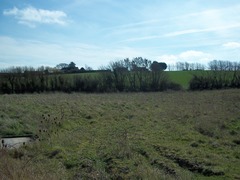 Registering plots of land as town or village greens preserves them for community use and renders them immune from development. However, as a High Court case showed, meeting the statutory criteria for registration is demanding and should not be attempted without expert legal advice.
Registering plots of land as town or village greens preserves them for community use and renders them immune from development. However, as a High Court case showed, meeting the statutory criteria for registration is demanding and should not be attempted without expert legal advice.
A campaigner had asked her local council to register a large field as a town or village green (TVG) under the Commons Act 2006. An inspector was appointed to consider the application at a public inquiry. She, however, recommended that the application be rejected on the basis that it had not been established that a significant number of local inhabitants had used the field for lawful sports and pastimes, as of right, for the required period of at least 20 years.
The inspector accepted that worn tracks that criss-crossed the field, used by locals for bike riding and blackberry picking, indicated that there might be public rights of way across it. However, that was insufficient to establish the quality and extent of neighbourhood use required by the Act.
There was evidence that locals used the field for sledging, tobogganing, snowman building and snow play generally during the winter. However, the inspector noted that there were not very many days of snow during the 20 years in question. She found that a reasonable landowner would have viewed the presence of locals on the field during snowy conditions as brief episodes of en masse trespass. Following a public meeting, the council accepted the inspector’s recommendations and registration was refused.
In dismissing the campaigner’s judicial review challenge to that decision, the Court could find no fault in the inspector’s conclusion that, once the tracks were taken out of account, there was evidence of only very limited recreational use of the field during the 20-year period. She was entitled to find that such use had been minor, infrequent, occasional, or not covering the whole of the field.
The campaigner’s arguments that the council had failed to give adequate reasons for a procedurally unfair decision were also rejected. She was ordered to contribute over £9,000 to the legal costs incurred in defending the case by the council and the property investment company that owned the field.

